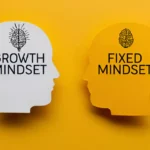Ever had one of those moments when your heart’s racing, your palms are sweaty (cue Eminem), and your brain decides now’s a great time to remind you of every embarrassing thing you’ve ever done? Yeah, me too. High-pressure situations—whether it’s presenting to a room full of skeptical executives, trying to nail an interview, or even giving a wedding toast—can turn the calmest person into a bundle of nerves.
But here’s the thing: confidence isn’t some mystical trait you’re born with. It’s more like a muscle—you build it, stretch it, and sometimes pull it when you overdo it. One of the best tools I’ve found for flexing that confidence muscle? Affirmations. And no, I’m not talking about looking in the mirror and shouting, “I’m a superstar!” though if that works for you, own it. I’m talking about something a little more grounded but just as empowering.
Let’s chat about how affirmations can transform your mindset, especially when the stakes are high. I’ll share a few personal stories, some science, and plenty of practical tips to help you talk yourself into crushing it the next time the pressure’s on.
What Exactly Are Affirmations, and Why Do They Work?
Affirmations are like little pep talks you give yourself—short, positive statements that challenge the “I’m not good enough” narrative looping in your head. They work because they shift your focus from fear to possibility. Think of them as the mental equivalent of noise-canceling headphones, tuning out the static of self-doubt.
Let me give you an example from my life. A couple of years ago, I had to give a presentation to a room full of marketing bigwigs. My imposter syndrome was in full bloom. I was convinced I’d trip over my words—or worse, my own feet. So, I tried an affirmation: “I know my stuff, and I communicate it clearly.” I repeated it while pacing backstage like a caffeinated squirrel. Did it erase all my nerves? No. But it helped me channel my energy into delivering a presentation that didn’t end in disaster (and maybe even impressed a few people).
Science backs this up. Studies show that affirmations light up the reward centers in your brain, helping you feel more in control. They’re not just motivational fluff—they’re rewiring your brain to think, Hey, maybe I CAN do this.
Why High-Pressure Situations Mess with Your Head
Here’s the deal: when you’re in a high-pressure scenario, your brain often mistakes the conference room (or exam hall or soccer field) for a battlefield. Enter the fight-or-flight response. Suddenly, you’re sweating like it’s 100 degrees and second-guessing every move. It’s biology, baby, but that doesn’t mean you’re stuck with it.
Affirmations work because they interrupt the spiral of self-doubt. Instead of thinking, What if I mess up?, you tell yourself, I’m capable and prepared. It’s not about pretending the stakes aren’t high—it’s about reminding yourself you can handle them.
What Makes a Great Affirmation?
Not all affirmations are winners. “I am Beyoncé” might boost your mood, but unless you’ve got her talent (or wardrobe), it’s not going to feel authentic. The best affirmations are:
- Personal: They should feel like they’re written for YOU, not a self-help book.
- Present-Tense: Frame them as if they’re already true. For example, “I am calm and focused” works better than “I will be calm.”
- Positive: Focus on what you want, not what you’re avoiding. (e.g., “I handle stress well” > “I’m not freaking out.”)
- Believable: If it feels like a stretch, tweak it. “I’m becoming more confident” can be more relatable than “I’m unstoppable.”
- Specific: Tailor affirmations to the moment. About to walk into a job interview? Try, “I articulate my value with clarity and confidence.”
How to Craft Affirmations That Actually Work
Let’s workshop this. Suppose you’ve got a big networking event coming up (and if you’re anything like me, the idea of small talk might make you want to hide under the nearest table). Here’s how you’d go about it:
- Identify Your Fear: Maybe it’s “What if I don’t know what to say?”
- Flip It: Turn that fear into an affirmation: “I am approachable, and conversations flow naturally.”
- Anchor It with Visuals: Picture yourself confidently chatting, laughing, and connecting. It’s like mental rehearsal for the real thing.
When to Use Affirmations
1. Morning Prep
Start your day with affirmations to set the tone. Think of it as your mental coffee. My go-to? “I am resilient and ready for anything.” It’s simple, but it works wonders when paired with actual coffee.
2. The Pre-Event Hype
Right before a big moment, find a quiet corner (or even the bathroom stall—no judgment) and repeat your affirmations. I’ve whispered, “I’ve got this,” to myself before walking into more rooms than I can count.
3. Daily Practice
Consistency is key. Write them in a journal, stick them on your mirror, or make them your phone’s lock screen. Over time, these affirmations become your mental default.
Examples of Affirmations for Every Occasion
Here are a few I’ve used (and borrowed from friends) over the years:
For Public Speaking
- “I share my ideas clearly and connect with my audience.”
- “I am confident, even under pressure.”
- “My words inspire and engage.”
For Interviews
- “I bring unique skills and perspectives to this opportunity.”
- “I am confident in my abilities and communicate them effectively.”
- “I trust myself to handle tough questions with ease.”
For Social Events
- “I am open, friendly, and make meaningful connections.”
- “Conversations come naturally to me.”
- “I enjoy meeting new people and sharing ideas.”
For Sports or Performance
- “I am focused, strong, and ready.”
- “I trust my preparation and perform at my best.”
- “I thrive under pressure and embrace the challenge.”
Do Affirmations Really Work, or Are They Just Woo-Woo?
Look, affirmations aren’t a magic wand. If you walk into an exam unprepared, repeating, “I am a genius,” won’t save you. But when paired with effort and preparation, affirmations can give you the mental edge you need to perform your best.
Think of it this way: they’re like a GPS for your brain. Without them, you might veer off into a ditch of self-doubt. With them, you stay on track, even if the road gets bumpy.
My Favorite Affirmation Fail (And What It Taught Me)
Okay, confession time: once, before a major pitch, I tried the affirmation, “I am calm and collected.” The problem? I was neither calm nor collected. Mid-pitch, I accidentally referred to a key investor as “that guy,” and I could feel the room tense up. But you know what? I learned to pivot—thanks, in part, to a backup affirmation: “I adapt and find solutions.”
The lesson? Affirmations don’t guarantee perfection, but they do help you bounce back faster when things go sideways.
Why You Should Start Today
Whether you’re preparing for a TED Talk or just trying to survive a family dinner, affirmations can be a game-changer. They’re easy, free, and—best of all—customizable to whatever chaos life throws your way.
So the next time you’re in a high-pressure situation, give it a try. Take a deep breath, repeat your affirmations, and remind yourself: You’ve got this. (And if all else fails, just picture everyone in their underwear—classic advice for a reason.)
Fun fact: The rise of affirmations has even found its way into pop culture. In 2023, athletes like Simone Biles and actors like Ryan Reynolds have credited affirmations as part of their success routines. If it works for them, why not for you?
Remember, life’s too short to let self-doubt win. Speak kindly to yourself—you’re listening.
FAQs
How long does it take for affirmations to work?
The time it takes varies from person to person. Some people feel a shift in their mindset almost immediately, while for others, it can take weeks of consistent repetition. Think of affirmations as planting seeds—you’ll see the growth with patience and care.
Can affirmations backfire if I don’t fully believe them?
Yes, they can feel disingenuous if they’re too far from your current reality. If this happens, tweak your affirmations to be more gradual, such as “I am learning to speak with confidence” instead of “I am the world’s best speaker.”
Are there apps or tools to help with affirmations?
Absolutely! Apps like ThinkUp, I Am, and Mantra offer customizable affirmation reminders and even audio options to help you practice regularly.
Do I need to say affirmations out loud, or is thinking them enough?
Both methods work! Saying them out loud engages more senses, which can make them feel more powerful. However, silently repeating them (e.g., during meditation or stressful moments) is equally effective if you’re in a place where speaking isn’t practical.
Should I change my affirmations frequently, or stick to the same ones?
It depends on your goals. If a particular affirmation resonates and aligns with a recurring challenge, stick with it. Otherwise, feel free to adapt or rotate affirmations to suit different situations or growth areas.
Can affirmations help with long-term confidence, or are they only for quick fixes?
Affirmations can do both. In the short term, they help you stay calm and focused under pressure. Over time, with consistent use, they can reshape your overall self-perception and build lasting confidence.
Are there affirmations for people who overthink or second-guess themselves?
Yes! Try affirmations like, “I trust my instincts and make wise decisions,” or “I release the need for perfection and embrace progress.”




